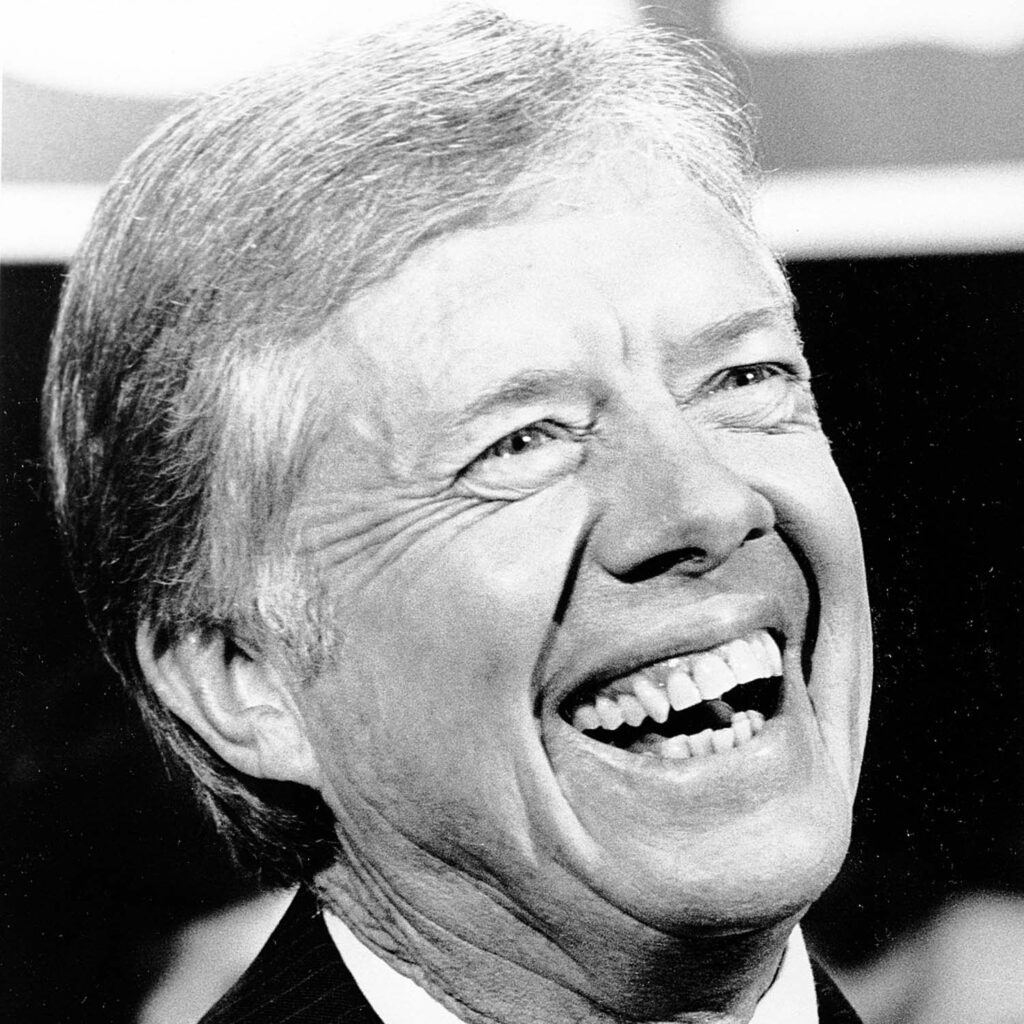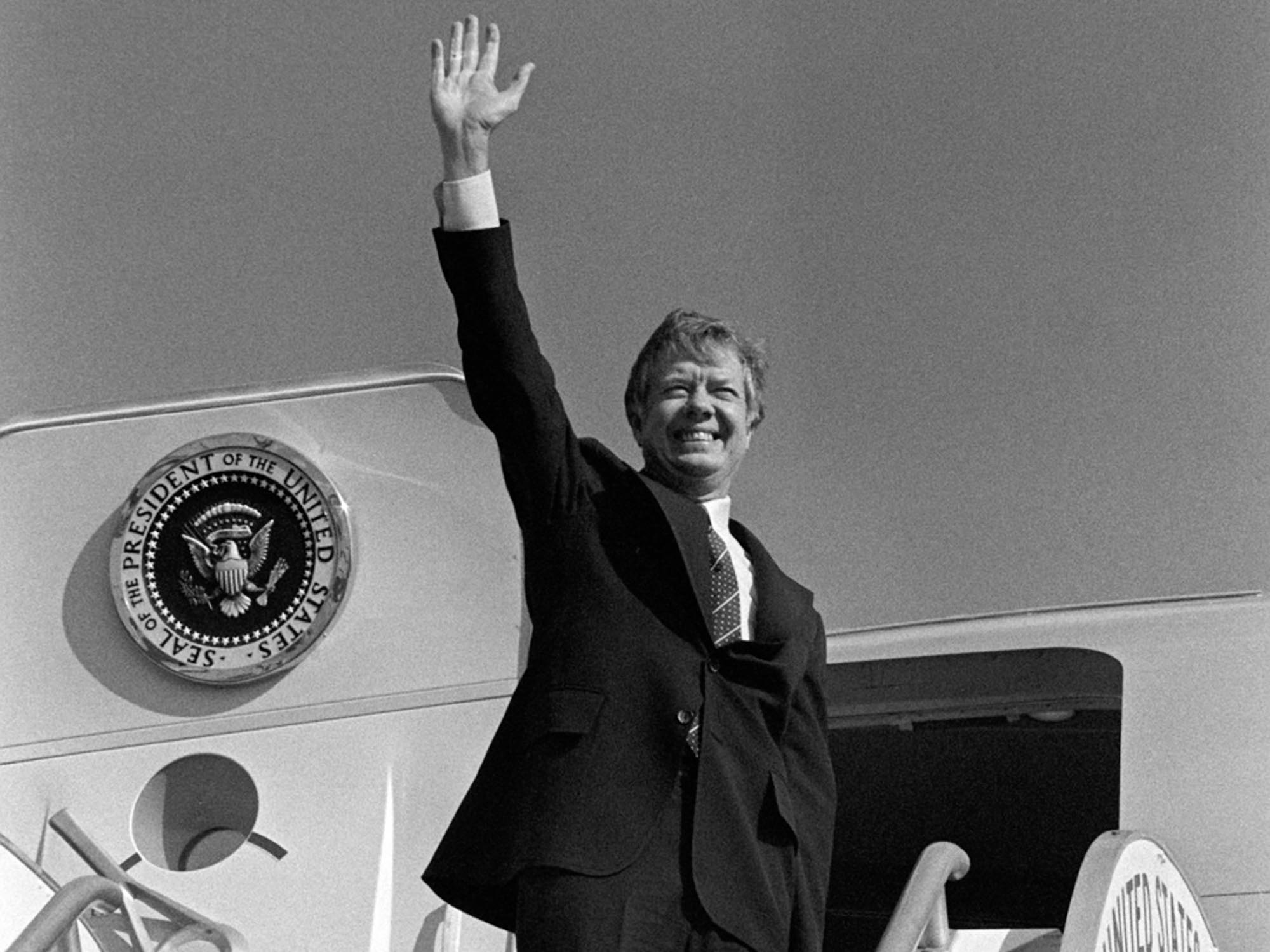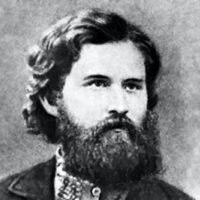A look at the United States is unavoidable. Especially for the past several decades, the world power has shown itself with different faces. The increasingly clear division of the country and fragmentation within the population, which showed its climax so far in the disastrous presidency of Donald Trump, has an impact on the whole world.
When we speak of a double face, we usually look at the negative side: never-ending racism, human rights violations, social and societal injustices, religious and nationalist fanaticism. It makes sense to look at those people who oppose the negative and stand up for the other United States of America. However, most of them remain unknown to us. Not Jimmy Carter. At least it is also known in this country that he was different from other politicians and presidents of the USA. To this day, Jimmy Carter is still a representative and spokesman for this other America. He was the president who had solar panels mounted on the White House as early as the 1970s, he had an awareness of the issue of climate change, sealed the peace agreement between Israel and Egypt, put human rights before economic interests, and did not wage war.
Jimmy Carter, whose full name is James Earl Carter, was born in 1924 as a child of the countryside. He grew up in simple peasant conditions and had almost only African-American children as playmates in a village with only a few hundred residents. The music he listened to was gospels and religious songs in the churches of the small villages. Already early on in his life, it became clear what he could later realize. He was a peanut farmer, a deacon in a Baptist church, a submarine officer, a senator, the governor of Georgia and president of the United States, later author, peace activist, human rights fighter, mediator, Sunday School teacher, and professor.
His outstanding achievements and accomplishments are his human rights policies, nature and environmental protection, and his peace missions. As president, he negotiated an epochal peace treaty between Israel and Egypt at Camp David. Sometimes ridiculed as a do-gooder, he fell into oblivion, because the problems of the Cold War, with which the world was confronted in those years, were too big. Who didn’t wonder at the time how Carter’s commitment to morality, decency, religion, human rights, social reform, and environmental protection had helped him move into the White House. Astute observers quickly had an explanation: the US was to be morally built up by him after the experience with Vietnam and the Watergate scandal. But as the consequences of his actions, which were aimed at achieving a common understanding, were clarified and his demands in social and societal areas were brought to every single citizen, he lost acceptance. When he called for changing one’s own behavior and respecting the environment, he had not only taken on the large-scale industry but also demanded too much from ordinary citizens. When he then refused to end the hostage drama of Tehran by force, the call for the strongman became louder. Therefore, after only one term in office, the actor and Republican Ronald Reagan, and thus a representative of right-wing forces, was able to seize power.
The Carter Center in Atlanta
Carter returned to the small town of Plains, Georgia. However, he only lives there, because he has remained a citizen of the world. After his presidency, he made furniture for himself, his children, and grandchildren in his small workshop. Then he set about building houses for the homeless and the socially vulnerable. With this initiative, he and his wife Rosalynn joined the charity Habitat for Humanity. For this alone, he would be entitled to the Nobel Peace Prize, according to the ‹Frankfurter Allgemeine›. Once a year, until a few years ago, he and his wife spent at least one week with their sleeves rolled up building houses in the social fringes of America and in many other places around the world. Rosalynn Carter, only three years younger than her husband, worked tirelessly to break the taboo on mentally ill people that is still widespread in the USA. The Carter Center, founded by the committed couple, is intended to be a meeting place where representatives of fighting parties can work on neutral ground with each other and with external help on peaceful solutions.

Carter did not avoid unpleasant topics and was not afraid to meet dictators and despots, including Kim Il-sung, the Stalinist ruler of North Korea who died in 1994. This earned him the sharpest criticism from his opponents. As he says, guided by the Christian spirit of reconciliation and charity, he formulates his counter-argument and says that these guys also need someone to listen to them. Fighting hunger is particularly important to the Carters because hunger in the world could be cut by more than half if every person in the developed world made a small, barely noticeable monthly donation to programs that increase food production and combat chronic undersupply. As early as 1993, Carter proclaimed his doctrine on hunger at the World Bank conference. He explicitly pointed out that he is not speaking as a former president, but as a representative of a non-governmental organization, as one of hundreds that have addressed the problem of hunger in the world. He describes the gap between rich and poor as the core problem, whereby he does not see the accumulation of property and money as wealth, but a way of life that ignores the elementary needs of other people. As early as 1980, he published the report ‹Global 2000›, an epochal work on the state of the world with figures, facts, and documents. This book has opened the eyes of an entire generation and is still appreciated today as a reference work.
Always against the grain
Despite their advanced age, Jimmy and Rosalynn Carter handled a considerable agenda until recently. Because, as Carter puts it, peace always has a chance.
Carter has written 33 books. The intellectual ex-president not only comments on political, private, and historical topics, but he has also written specialist books for fly fishermen, a children’s book, and a volume of love poems. His work on the problem of aging is also appreciated, which triggered a discussion in the USA about the youth cult distorted to the grotesque. Based on his deeply rooted Christian faith, he has written a meditation book with texts for every day of the year. Carter deliberately opposes the tide of time and is not afraid to address personal experiences, for example when he speaks frankly about sexuality at an advanced age. He also does not pretend to be a historian but packages his criticism of the lack of reappraisal of American traumas in a novel (‹The Rebels›, 2004). In his view, it is an important step to see right through the patriotic-nationalist glorification of American history and to oppose the cold logic of unnecessary wars. Carter never tires of expressing his opinion on US politics, such as the indigenous genocide, slavery, racism, America’s position in the world, the Middle East conflict, the Iraq war, Guantanamo Bay, the restriction of civil rights, American fundamentalism, the lack of environmental protection, and the increasing impoverishment and social misery of entire sections of the population.
The other America
Jimmy Carter became the most prominent spokesman for another America. He is a stark antithesis of George W. Bush or Donald Trump. The US is no longer a constitutional democracy, Carter said. In an interview, he said that the US is an oligarchy with boundless political bribery and corruption. Monetary support contributes to who becomes a presidential candidate and ultimately president of the country.
Some time ago, the almost 100-year-old survived cancer and several surgeries, is now alive and kicking again, and has received another Grammy Award for his audiobook ‹A Full Life: Reflections at Ninety›. Personal encounters are important to him. He usually answers letters by hand. His work is not yet over at the age of 97. Even the FAZ, which is rather sparing with praise, attributes increased moral authority to the «annoying idealist». Carter is allowed to appear as «the conscience of America because he himself has a conscience».
Carter can be placed in among the noble American traditions of a Chief Seattle, the philosophers Ralph Waldo Emerson, Henry David Thoreau, Margaret Fuller, and other transcendentalists, but also in the world of his contemporaries, such as Martin Luther King, Rosa Parks, Joan Baez, Noam Chomsky, Ruth Bader Ginsburg, and many other, rather quiet and as yet unknown Americans. He is one of them and they all represent the other America.
Harald Kiczka’s forthcoming publication: ‹Jimmy Carter and the Other America. A Biography› by Info3-Verlag Frankfurt.
Cover photo: President Jimmy Carter, August 1977. Picture Source: The U.S. National Archives





